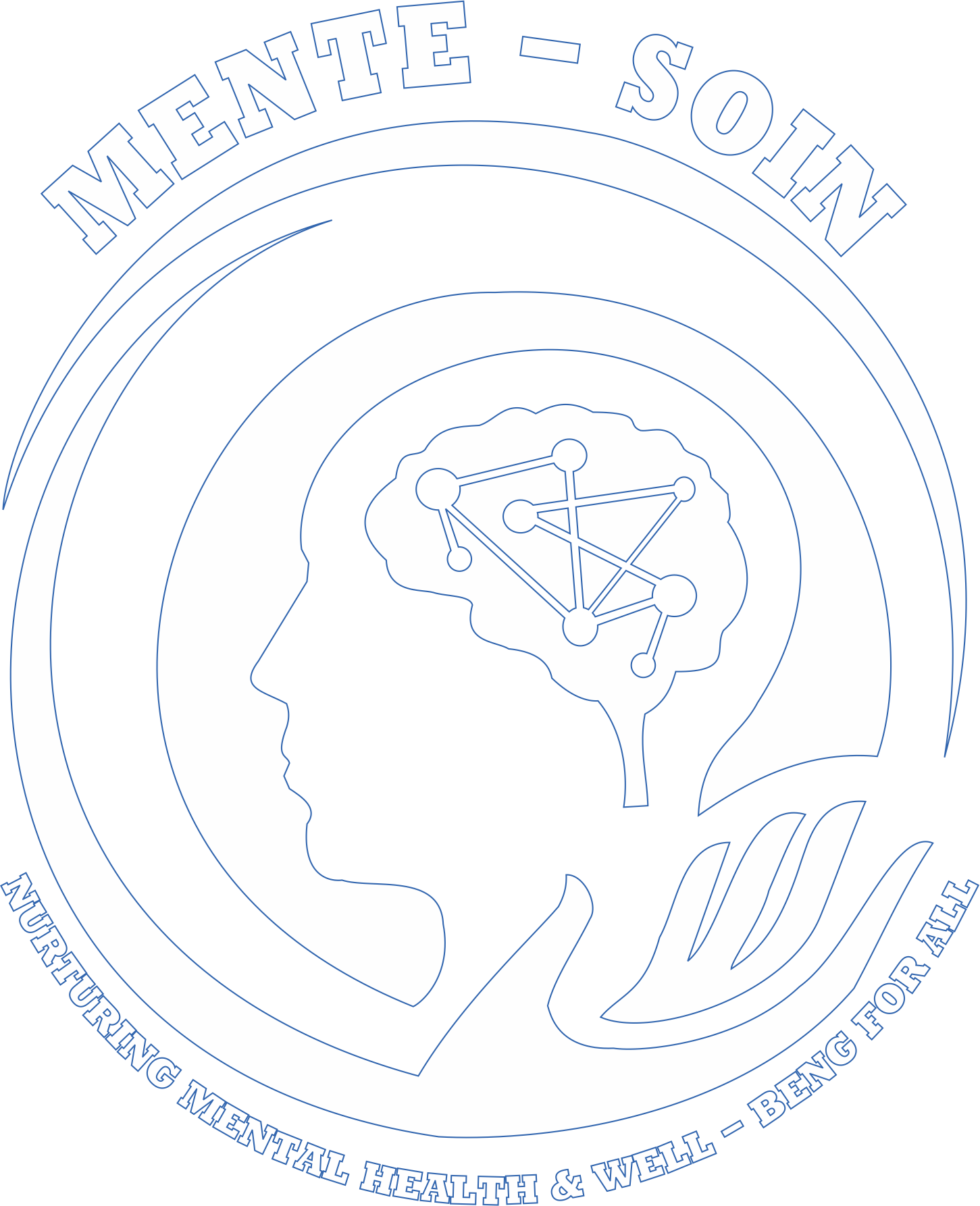Transformative Power of Jungian Psychotherapy: Bridging Personal and Collective Unconscious
Dr. Mathew Thomas, PhD, Practitioner Psychologist and Accredited Psychotherapist In the realm of modern psychology, Carl Jung’s exploration of the human psyche, particularly the workings of the unconscious, stands out as a beacon of insight. Traditional therapy often centers on accessing the personal unconscious, the deeper aspect of our individuality. However, the true transformative force lies in the collective unconscious – a realm that encompasses our dreams, universal connections, and the unfamiliar, yet integral, parts of our identity. This collective unconscious carries our shared experiences, including our collective traumas and evolving history. It’s worth noting that many societies teach a restricted version of history, limiting progressive thinking and intellectual curiosity. This approach can hinder our ability to tap into the full potential of our collective unconscious. While forward-thinking psychotherapy can begin with the present moment, addressing immediate perceptions and worldviews informed by the personal unconscious, true transformation requires delving deeper. As a “doctor of the soul,” I’ve observed that focusing solely on the personal unconscious and cognitive realm often yields only short-term benefits. The transformational model of psychotherapy I advocate for provides a safe space to explore the deep reservoirs and archetypal symbols hidden in the collective unconscious. The gateway to this future is the “here and now,” with therapy offering a conscious pathway to a more promising existence, and fosters insightful cognition to meet life’s unique challenges. While the ultimate goal of therapy is human transformation, it often begins with transition. Not everyone can immediately commit to the continuity required for full transformation. Sometimes, a transitional object is necessary for initiating a paradigm shift. The initial breakthrough, emerging from breakdowns, requires hard work and a strong alignment between psychologist and client. The Jungian approach I favor is forward-looking, focusing on associating into the future rather than solely retreating into the past, as in Freud’s traditional free association model. While free association can reveal hidden or repressed material crucial for understanding psychological difficulties, it often deviates from the main focus of therapy. As a Jungian analyst, I help clients communicate with different parts of themselves, allowing wounded aspects to express their pain and gain deeper understanding. This process fosters wisdom, learning, and a sense of direction for a better future. Once these parts feel seen and heard, it can help these parts release their pain. This leads to healing as unconscious issues are integrated into conscious awareness safely and compassionately.
Overlapping Between BPD and Scamming: A Therapeutic Response
Author: Dr. Mathew Thomas, PhD Recognizing manipulative behaviors that may stem from Borderline Personality Disorder (BPD) can be challenging, especially for those unfamiliar with the complex manifestations of this condition. BPD, classified as a personality disorder in the DSM-5, is marked by emotional instability, a deep fear of abandonment, impulsive actions, and difficulties in maintaining stable relationships. When coupled with deceitful or manipulative tendencies, these traits can create interactions that leave others feeling confused, vulnerable, and even exploited. Why Is BPD Difficult to Identify?BPD is notoriously hard to diagnose, even for seasoned clinicians, as individuals often present differently depending on the context. Initially, someone with BPD may seem charming, empathetic, and engaging, masking underlying symptoms. However, as the relationship progresses, emotional volatility, manipulation, and projection may surface. People with BPD often struggle to accept their diagnosis and may react defensively or aggressively when confronted. Their strong sense of victimhood, coupled with a self-righteous stance, can make it difficult for them to see their role in conflicts. This dynamic can be bewildering, especially when dealing with a friend, business associate, or partner who appears reasonable but displays troubling, contradictory behaviors. The Challenge of Navigating BPD Traits in Business or Personal RelationshipsImagine a scenario where you have a business associate who initially seems like an ideal partner—charismatic, articulate, and driven. Over time, you notice erratic behaviors: sudden accusations, disproportionate anger over minor disagreements, or excessive demands for validation. Attempts to address these issues may be met with accusations of mistreatment or betrayal, with the individual refusing to take responsibility for their actions. They might resort to manipulative tactics, such as legal threats or spreading false rumors, to maintain control and keep you engaged. In such cases, the individual may project their insecurities onto you, accusing you of being manipulative. This creates a confusing and emotionally draining dynamic, potentially damaging both personal and professional relationships. Recognizing Symptoms of BPD in Manipulative BehaviorTo navigate interactions with someone exhibiting BPD traits effectively, it’s crucial to understand the core symptoms of the disorder: Fear of AbandonmentAn intense fear of abandonment is a hallmark of BPD. Individuals may use clingy behavior, emotional outbursts, or manipulative tactics to avoid perceived rejection. In business, this may manifest as a refusal to end a partnership, accompanied by threats or deceit to maintain control. Unstable RelationshipsPeople with BPD often experience turbulent relationships, oscillating between idealization and devaluation. In a scam scenario, they may initially charm you, only to turn against you abruptly when things don’t go their way. This abrupt shift can be disorienting, making you more susceptible to manipulation. Impulsive and Risky BehaviorImpulsivity is a key feature of BPD, often seen in financial recklessness, substance abuse, or sudden, destabilizing decisions. Scammers with BPD traits might make irrational demands, threaten legal action without cause, or make hasty business moves that disrupt your plans. Emotional VolatilityExtreme mood swings, ranging from euphoria to intense anger or despair, are common in BPD. This emotional instability can be weaponized, using guilt, fear, or pity to extract financial or emotional concessions. Chronic Feelings of Emptiness and Need for ValidationPersistent emptiness and a constant craving for validation may drive manipulative behaviors aimed at gaining attention, praise, or financial rewards. The individual may adopt a victim role to elicit sympathy, using their emotional turmoil as a tool to draw you in. Manipulation and ProjectionProjection is a common defense mechanism in BPD, where the individual attributes their negative traits or behaviors to someone else. In a business context, they might accuse you of deceit or manipulation, effectively projecting their own actions onto you. This tactic can create confusion and pull you into a manipulative emotional spiral. Personal Experience: A Cautionary TaleI once encountered an individual who initially came across as charismatic and versatile. Despite sensing an ulterior motive early on, I chose to be vulnerable, hoping our combined expertise in mental health and business could be transformative. However, as discussions progressed, their need for control became apparent. When they abruptly exited the project, they demanded financial compensation despite no contractual agreement in place. They escalated the situation by contacting my associates, spreading false narratives, and attempting to coerce me into compliance. At one point, the individual insisted I share my credit card details to activate a social media account. I refused, instead offering a wise digital card, which I promptly blocked afterward. This experience highlighted the complexity of dealing with manipulative behaviors that may stem from BPD or a calculated scamming strategy. Scammers often use gender-related accusations to paint their target as the villain. If their financial schemes fail, they typically move on to the next victim. The Link Between BPD Traits and Scammer BehaviorWhile not all manipulative behavior can be attributed to BPD, there is a notable overlap: Desperation for Control: The fear of abandonment and need for validation in BPD can drive manipulative behaviors aimed at maintaining control, similar to the tactics used by scammers.Victim Mentality: Scammers often adopt a victim role to gain sympathy and deflect blame, mirroring the BPD tendency to externalize responsibility.Charm and Deception: Both scammers and individuals with BPD may initially appear charming and empathetic, only revealing manipulative tendencies as the relationship deepens. Navigating Manipulative Behaviors Establish Clear Boundaries: Set firm boundaries and do not compromise on them.Document Interactions: Keep records of communications, especially if threats or manipulative tactics are used.Avoid Emotional Engagement: Stay factual and neutral in your responses to avoid feeding into the manipulation cycle.Seek Professional Guidance: Consult a therapist or legal advisor for strategies on handling the situation.Focus on Behaviors, Not Diagnosis: Avoid attempting to diagnose the individual; instead, address specific problematic behaviors. Dealing with someone exhibiting BPD traits or scammer behavior can be disorienting and emotionally taxing. Recognizing the patterns, setting firm boundaries, and seeking professional support are key steps in protecting yourself. While compassion is essential, your primary responsibility is to safeguard your own well-being. Remember, you are not responsible for healing the other person—your obligation is to protect yourself. References:



